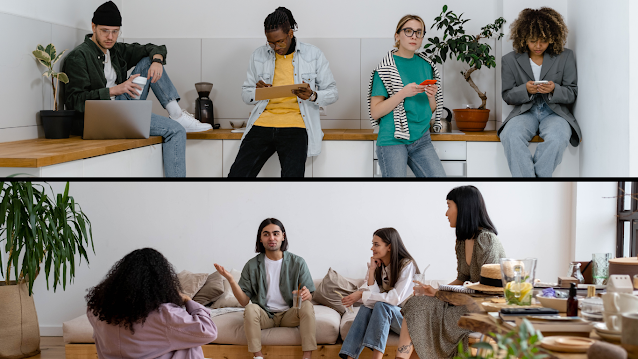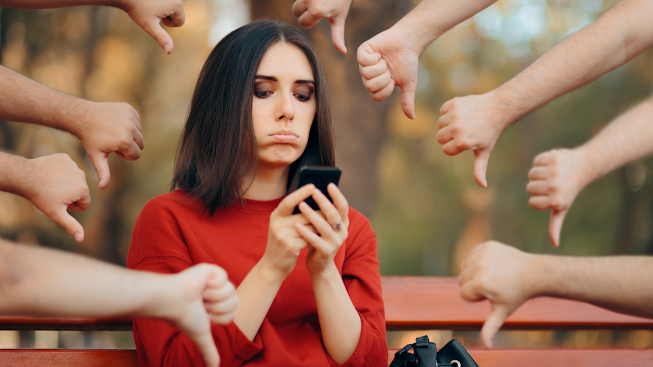Unraveling the Phenomenon of Social Media-Induced Popcorn Brain
In the age of information, where social media platforms dominate our daily lives, a new and concerning phenomenon has emerged - "Social Media-Induced Popcorn Brain." This term aptly describes the scattered, fragmented attention and cognitive overload that individuals experience as a result of excessive social media use. As we navigate the vast sea of tweets, posts, and updates, our brains are being bombarded with bite-sized content, akin to popping corn in a microwave, leaving us with a mental state characterized by impulsivity, distraction, and a reduced ability to focus.
The Rise of Popcorn Brain:
Social media platforms have become integral to our daily routines, offering a constant stream of information, entertainment, and social interaction. However, the sheer volume of content, coupled with the algorithms designed to capture and retain our attention, has given rise to a culture of rapid consumption and instant gratification. Users find themselves constantly switching between different topics, unable to delve into deep, meaningful thought processes.
The Impact on Attention Span:
One of the most noticeable effects of social media-induced popcorn brain is the dwindling attention span. The constant barrage of notifications, updates, and notifications conditions our brains to seek novelty and instant rewards, making it difficult to engage in sustained and focused cognitive activities. Studies have indicated a correlation between heavy social media use and shortened attention spans, posing challenges for tasks that require prolonged concentration and critical thinking.
Impulsivity and Information Overload:
The nature of social media encourages quick, impulsive reactions to content, fostering a culture of instant judgments and emotional responses. The constant influx of information, often presented in bite-sized formats, can overwhelm the brain's capacity to process and retain meaningful data. As a result, users may find themselves trapped in a cycle of scrolling, clicking, and reacting without fully comprehending the implications of their actions.
The Role of Algorithms:
Social media algorithms play a significant role in shaping the content users encounter, creating echo chambers and filter bubbles that reinforce existing beliefs and preferences. This selective exposure can contribute to a narrow worldview, limiting exposure to diverse perspectives and ideas. The algorithmic design of social media platforms unintentionally fuels the popcorn brain phenomenon by catering to our preferences and delivering content that aligns with our existing interests.
Strategies for Cognitive Rejuvenation:
Overcoming social media-induced popcorn brain requires intentional efforts to reclaim control over our cognitive processes. Here are some strategies to consider:
Digital Detox: Periodically disconnect from social media to allow your brain to reset and refocus.
Mindful Consumption: Practice mindful engagement with social media by setting specific times for usage and avoiding mindless scrolling.
Diversify Content: Seek out diverse sources of information to broaden your perspective and challenge pre-existing beliefs.
Deep Work Sessions: Carve out dedicated time for deep, focused work without distractions from social media.
While social media has undoubtedly revolutionized the way, we connect and share information, the rise of popcorn brain highlights the need for a balanced and mindful approach to our online interactions. Recognizing the impact of social media on our cognitive processes empowers us to make conscious choices that foster deep thinking, sustained attention, and a healthier relationship with the digital world. By understanding the implications of popcorn brain, we can work towards creating a digital landscape that supports meaningful engagement and cognitive well-being.
Nurturing Connection: The Healing Power of Personal Contacts to Combat Popcorn Brain Syndrome
In an era dominated by the constant chatter of social media, where attention spans are fragmented and distractions abound, the remedy for the popcorn brain syndrome may lie in a seemingly simple yet profound solution: personal contacts. In a world where digital interactions often overshadow face-to-face connections, fostering and prioritizing real-world relationships may hold the key to reclaiming our cognitive focus, reducing impulsivity, and nurturing a more balanced mental state.
The Power of Personal Contacts:
Humanizing Interactions:
Personal contacts offer a depth of connection that digital communication cannot replicate. Engaging in real conversations, sharing experiences, and being physically present with others humanizes our interactions, fostering empathy and emotional intelligence. This depth of connection can serve as a powerful antidote to the superficiality often associated with social media.
Mindful Presence:
Face-to-face interactions demand a level of presence and attention that is often diluted in the digital realm. By actively participating in conversations, listening attentively, and being fully present, individuals can train their minds to focus deeply on one topic at a time, gradually countering the popcorn brain phenomenon.
Reducing Information Overload:
Personal contacts inherently involve fewer stimuli compared to the constant barrage of notifications and updates on social media. Engaging in meaningful conversations allows individuals to navigate discussions at a more measured pace, reducing cognitive overload and providing space for thoughtful reflection.
Building Genuine Connections:
Authentic relationships contribute to a sense of belonging and fulfillment. Personal contacts offer opportunities to build trust, share genuine experiences, and form connections based on shared values and interests. These deep connections can serve as a stabilizing force against the fleeting, surface-level interactions prevalent in the digital landscape.
Strategies for Cultivating
Personal Contacts:
Prioritize Face-to-Face Time:
Actively schedule time for in-person meetings, whether it's with friends, family, or colleagues. This intentional effort fosters stronger connections and allows for more meaningful interactions.
Digital Boundaries:
Establish clear boundaries for digital interactions, designating specific times for social media use and creating tech-free zones during personal contacts to enhance focus and engagement.
Community Engagement:
Participate in local events, clubs, or community activities to meet new people and expand your network of personal contacts. Shared experiences in the real world contribute to a more fulfilling social life.
Mindful Listening:
Practice mindful listening during personal contacts, giving your full attention to the conversation at hand. This not only deepens the connection but also helps to strengthen your ability to concentrate on a single topic.
“The remedy for popcorn brain syndrome may require a return to the roots of human interaction. Prioritizing personal contacts allows individuals to break free from the digital noise, fostering genuine connections that enrich the mind and provide a counterbalance to the scattered attention often associated with excessive social media use. In the quest for cognitive well-being, the healing power of face-to-face connections stands out as a timeless and invaluable remedy.”
Social networking applications like Netclan Explorer promotes personal interactions and humanizing contacts by digitally connecting the community over app based on the common grounds, and further facilitates human contacts by connecting people in the vicinity and approachable distances. The app is slated to bring a considerable shift from long distance digital interactions to short distance personal contacts thus helping to develop connected and inclusive communities which were the roots of human evolution.
.png)
.png)
.png)
.png)

.png)
.png)
.png)


.png)
.png)
Comments
Post a Comment